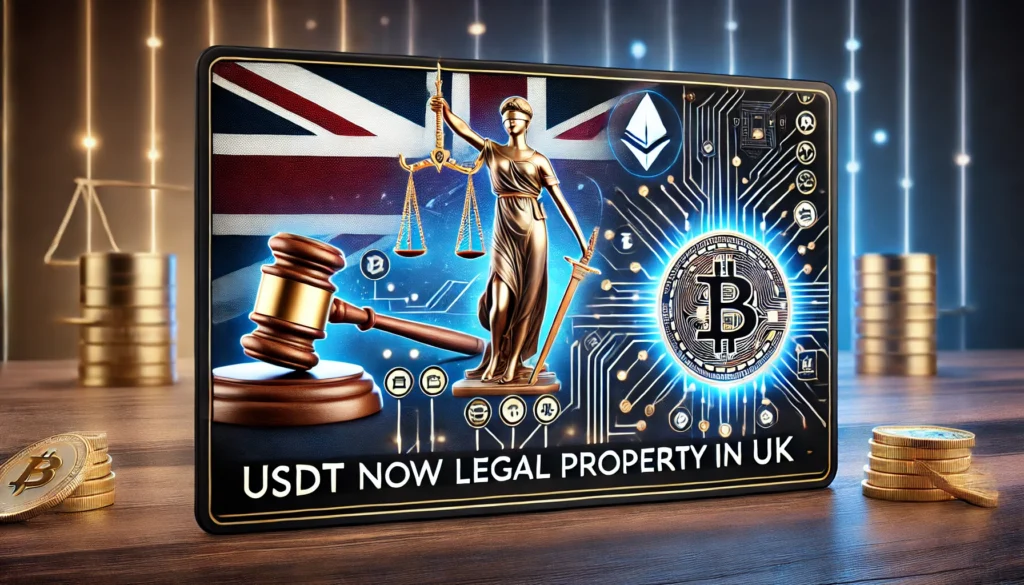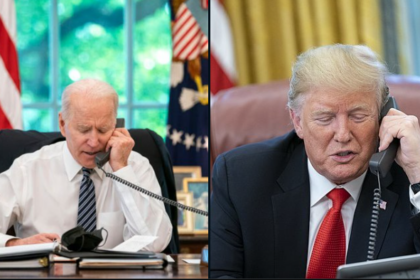
UK Crypto Regulation : The High Court of Justice in England has classified Tether’s USDT stable coin as property under English law.
This ruling is a important development of UK crypto regulation, paving the way for how cryptocurrencies, especially stable coins like USDT, are managed in legal scenarios.
USDT to Be Property
In simple terms, the High Court has recognized that USDT, a stablecoin connected to the US dollar, can now be treated as legal property. Just like owning a car, money, or any other financial asset, USDT can now be legally owned, transferred, and included in legal trusts. This means that if someone owns USDT, they have full rights to it, and it can be tracked through transactions.
Deputy High Court Judge Richard Farnhill explained, “USDT attracts property rights under English law. It can be the subject of tracing and can constitute trust property in the same way as other property.”
The Case That Led to This Ruling
The ruling emerged from a case involving Fabrizio D’Aloia, who fell victim to a cryptocurrency scam. He claimed he was misled into handing over a substantial amount of cryptocurrency, including USDT and USDC (Circle’s stablecoin), worth around £2.5 million (approximately $3.3 million). The scam involved passing the funds through various blockchain wallets before being withdrawn as fiat currency by the fraudsters.
D’Aloia’s case also involved well-known exchanges like Bitkub and Binance. While the case against Binance was settled, the court found that Bitkub had no responsibility since they did not directly receive the stolen assets. Even though D’Aloia couldn’t claim against Bitkub, the court’s decision sets an important precedent for future crypto fraud cases and aligns with the broader movement in UK crypto regulation.
The UK Government’s Bill on Crypto and Property
This ruling aligns closely with a recent UK government bill aimed at further refining UK crypto regulation. The bill formally classifies cryptocurrencies, non-fungible tokens (NFTs), and carbon credits as “personal property.” Introduced by the Law Commission, the bill suggests that while crypto isn’t a physical item like money or a “thing in action” like debt or shares, it is still recognized as property. This marks a significant step toward clearer regulations in the crypto space.
How Will This Impact the Crypto World?
This ruling helps protect crypto owners by making it easier to trace and recover stolen assets through legal action. It also officially recognizes cryptocurrencies as property, meaning they can be treated like other assets in legal cases, such as being seized, transferred, or included in transactions. This gives investors more confidence, knowing their digital assets are now legally protected under UK crypto regulation, which could encourage more people to invest in cryptocurrencies.
What Changes Might Happen Next?
More Legal Cases Involving Crypto: As cryptocurrencies gain recognition as property under UK crypto regulation, we could see an increase in legal cases involving crypto assets. This includes lawsuits related to fraud, theft, and disputes over ownership.
Regulatory Changes: Other countries might follow the UK’s example and begin treating cryptocurrencies like property under their own legal systems. This could lead to more regulations around the use, trading, and ownership of digital assets.
Impact on Other Coins: This ruling sets a precedent that could benefit other cryptocurrencies like Bitcoin, Ethereum, and other stablecoins. As these digital assets are treated more like property, it will likely shape future regulations and legal decisions around them, contributing to the evolving landscape of UK crypto regulation.
Conclusion:
The High Court of England’s decision to recognize USDT as property is a revolution for the crypto space and a key development in UK crypto regulation. It provides better protection for investors, makes digital assets more traceable, and sets the stage for more legal recognition of cryptocurrencies worldwide. As we move forward, this ruling could reshape how the law views crypto and help bring more security and lawfulness to the industry.
In the end, this is just the beginning. With laws evolving and digital assets gaining more acceptance, the future of crypto looks brighter—and much more legally secure—thanks to advancements in UK crypto regulation.
Also read : Vitalik.eth Sold Massive $341K Worth Of Meme Coins








